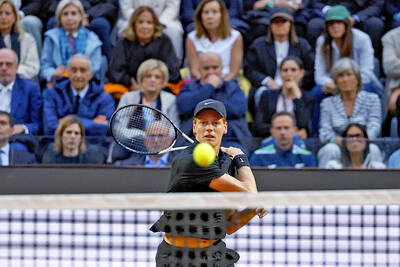There have been plenty of flash points in cricket in the more than 75 years since an England team led by Douglas Jardine and under the auspices of Marylebone Cricket Club (MCC) arrived in Australia.
Even so, few have been as controversial as the 1932-1933 “Bodyline” series where Jardine’s despised tactics not only threatened the future of Test cricket, but undermined the bonds of the British Empire.
Jardine, a cold, calculating product of Winchester and Oxford, devised a strategy of dangerously short-pitched bowling using his two fast bowlers, Harold Larwood and Bill Voce, to combat Don Bradman, Australia’s sporting hero of the Depression-ravaged times.
“The Don” had been rewriting cricket’s record books since his Test debut in 1928 and when the Australians won the five-Test series 2-1 in England in 1930, Bradman amassed 974 runs at a batting average of 139.14, an aggregate record that stands to this day.
Jardine’s theory of directing his bowlers to bowl at leg stump and make the ball rear into the batsman’s body became known as “Bodyline.”
When Jardine was appointed England captain for the Australian tour, one of his former Winchester schoolmasters, Rockley Wilson, is said to have warned he might win the Ashes, but he would lose a dominion in the process.
Passions became so inflamed that during the third Test at the Adelaide Oval in January 1933, seething spectators threatened to jump the fence as anti-English feelings soared.
Bill Woodfull, Australia’s gentlemanly captain, was twice struck by bouncers and wicketkeeper Bert Oldfield edged a ferocious delivery from Larwood on to his temple, collapsed beside the pitch and was carried from the field unconscious.
It produced one of the immortal quotes in Test cricket, when Woodfull told the English management: “There are two teams out there and only one of them is playing cricket.”
Behind the scenes there were frantic political negotiations to save the tour and restore frayed diplomatic relations between Britain and Australia.
The British coalition government’s Dominion Secretary J.H. Thomas later described “Bodyline” as the most troublesome affair of his ministerial career.
England’s emphatic 4-1 series victory brought both opprobrium and praise for Jardine.
The campaign curbed Bradman’s batting average to 56.57. He scored just one century in his four Tests, with a series aggregate of 396 runs.
Without that series, Bradman would have finished his career with a Test average of 104.76 instead of 99.94.
Larwood, the former Nottinghamshire coal miner, claimed a series-high 33 wickets at 19.51, but events soured him. The 28-year-old pace man never played for England again.
Larwood later migrated to Australia with his wife Lois and his five daughters, and lived in Sydney until his death in 1995, at the age of 90.
Jack Fingleton, who played in three of the Tests, echoed the feelings of others in the Australia team when he later wrote: “I do not think there was one single batsman who played in most of those ‘Bodyline’ games who ever afterwards recaptured his love for cricket.”
It says much for the series that it remains the only chapter in cricket’s history that film-makers have thought worth dramatizing.
A television mini-series was first broadcast in Australia in 1984.
Jardine resigned as England captain before Australia’s 1934 Ashes tour and retired from first-class cricket aged 33.
That same year, MCC outlawed systematic bowling of fast and short-pitched balls at batsmen standing clear of their wicket.
Bradman, once lauded as the greatest living Australian, died in Adelaide on Feb. 25, 2001, aged 92, while Jardine died from lung cancer aged 57 in Montreux, Switzerland, in June 1958.

SSC Napoli’s Italian Serie A title hopes suffered a late setback on Sunday when they were held to a 2-2 draw at home against Genoa, setting up a thrilling season finale with closest rivals Inter just one point behind. The hosts remain top with 78 points, holding a slim lead over Inter, who won 2-0 at Torino earlier on Sunday, with two rounds remaining. To make matters worse for Napoli, midfielder Stanislav Lobotka, struggling with an ankle injury, was forced off just minutes after the match began. Scott McTominay delivered a perfect pass into the box where Romelu Lukaku got

A stunning Lamine Yamal strike on Thursday helped crown Barcelona La Liga champions with a 2-0 win over local rivals RCD Espanyol, with victory ensuring Real Madrid cannot catch them at the top of the table. Yamal’s effort and Fermin Lopez’s goal took Hansi Flick’s side seven points clear of Los Blancos with two matches remaining, to clinch Barcelona’s 28th title and complete a superb domestic treble. Only the UEFA Champions League title escaped an exciting young Barca side this season, as they won the league for the second time in six years, at Espanyol’s ground again just as in 2022-2023. Back then,

Jannik Sinner on Thursday marched into the semi-finals of the Italian Open after destroying Casper Ruud in straight sets 6-0, 6-1, while Coco Gauff won a marathon three-set battle with China’s Zheng Qinwen to advance to the women’s singles final. American Gauff is to face Italy’s Jasmine Paolini in today’s title match after pulling through 7-6 (7/3), 4-6, 7-6 (7/4) in a match that lasted over three-and-a-half hours. Ruud was supposed to be Sinner’s toughest test in Rome since he came back from his three-month doping ban, as the Norwegian came into the match in hot form on clay after winning in

Shohei Ohtani on Thursday delivered his first two-homer game of the season and had six RBIs as the Los Angeles Dodgers poured it on with five long balls in a 19-2 victory over the visiting Athletics. Max Muncy, Andy Pages and James Outman also hit home runs for the Dodgers, who left no doubt by taking a 13-2 lead following a seven-run third inning. Muncy and Kim Hye-seong each had three hits for Los Angeles. Dodgers right-hander Matt Sauer led off a bullpen game by allowing two runs in four innings. Left-hander Justin Wrobleski (1-1) finished with four scoreless innings after he